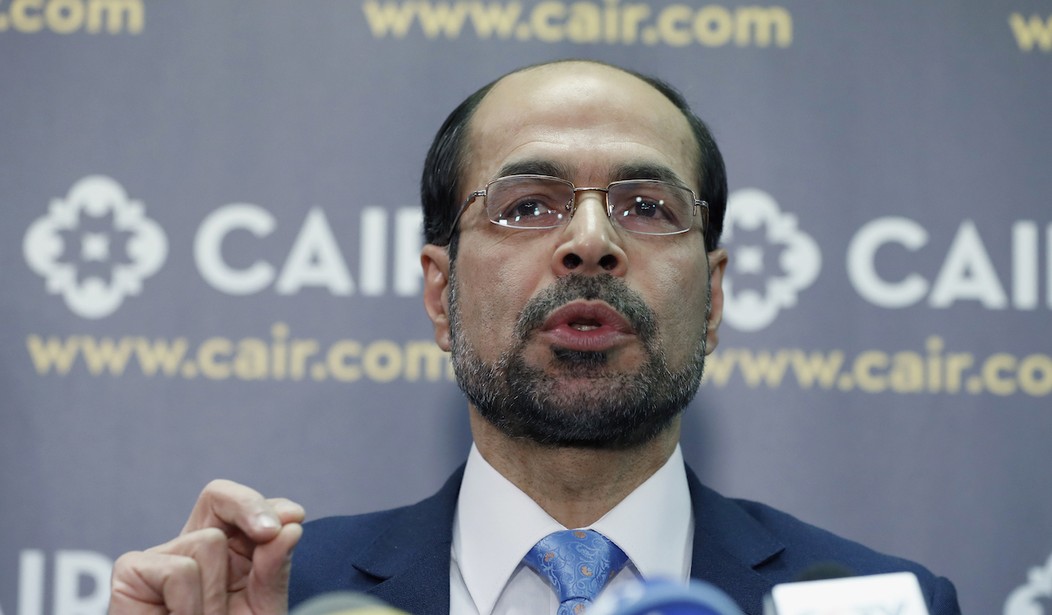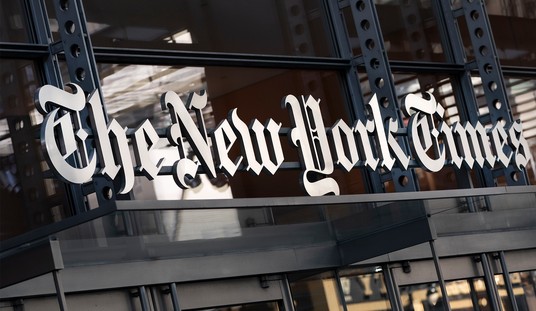It is easy to become distracted in this age of information overload. We are bombarded with data input from sources both ridiculous and sublime. And every issue seems to be existential, or at least is cast in that way. Covid virus hysteria, China rising, budget-busting budgetary blow-out bills brought to us courtesy of a Democratic Party at the controls of all the levers of power. It is in just such times, with our country’s leadership, such as it is, juggling many balls, that our adversaries see opportunity.
It is good, therefore, that we have folks like Dr. William Saxton and his estimable Citizens for National Security keeping a vigilant eye on those other threats we face. CFNS has recently published “Council on American-Islamic Relations: 2020 View,” which is an update to its earlier “Council on American-Islamic Relations: Its Use of Lawfare and Intimidation,” published in 2013.
The 2020 View was written pseudonymously by “Col. C. Grant Hall,” a nod to the author’s West Point education and the Academy’s beloved dining facility. He also holds a master’s degree from Harvard, served in Ranger and Special Forces units in Vietnam, and spent over 40 years working in intelligence and special operations, including many years in the Middle East, where he developed extensive expertise in radical and pollical Islam. Tellingly, the author notes at the outset that he chose to write under a pen name “given CAIR’s penchant for using lawfare and intimidation to silence critics.” Who can blame him for wanting to keep his hard-earned savings after a lifetime of service to the nation from the clutches of lawyers hired to defend him in baseless defamation actions? But that mere fact is a mute testament to the effectiveness of CAIR’s tactics and apropos of the book’s thesis.
The Council on American-Islamic Relations, or CAIR, is of course the organization which bills itself as “the nation’s largest civil rights and advocacy organization,” but was also identified as an unindicted co-conspirator in the largest terror-financing case in American history, USA v. Holy Land Foundation for Relief and Development, et al., which ran from 2007 to 2008. HLF was found guilty of having given more than $12 million to the infamous terrorist organization Hamas, and five individuals in the case were convicted on charges of providing material support to a foreign terrorist organization and conspiracy to commit money laundering. They received sentences ranging from 15 to 65 years.
Recommended
In his book, Hall says of CAIR, “The reality of CAIR is radically different from the image it tries to project. CAIR’s success in projecting a false image of itself to the American political, media and academic elite is a classic example of an expertly executed campaign of denial and deception.” He then relies on a review of authoritative sources, as well as CAIR’s own literature and websites, to provide examples of what he describes as CAIR’s “critical service to the international Jihadist movement through psychological warfare, perception management, and disinformation.”
Hall provides a useful discussion of CAIR’s lineage, noting that, “In order to fully understand the CAIR of 2020, one must reach back almost 100 years.” He then discusses the organization’s roots in the Muslim Brotherhood, founded in 1928 in Egypt by Hasan al-Banna, and bolstered ideologically by the writings of Sayyid Qutb. Hall then traces CAIR’s roots through Hamas, which was the Palestinian branch of the Muslim Brotherhood, and first gained notoriety and strength during the First Intifada from 1987-1993.
Hall identifies the central players in CAIR’s evolution, such as Dr. Mousa Mohammed Abu Marzook, who, according to the HLF prosecutors, “funneled hundreds of thousands of dollars into the three organizations (UASR/IAP/OLF/HLF) during a time when he was an unemployed graduate student.” The officers of one of those organizations, IAP (Islamic Association of Palestine), would go on to found CAIR in 1994. IAP itself is described by the author as “a propaganda outlet,” and had itself been founded by the “Palestinian Committee,” which Hall describes as a “sub-group of active Muslim Brotherhood members of Palestinian origin.” The Palestinian Committee, he says, “became the responsible body in the U.S.” for providing outside support to Hamas.
The author goes on to identify various other characters involved in the rise of CAIR. He also identifies those associated with CAIR who were later convicted of various crimes, which CAIR has sought to downplay.
Hall summarizes the tactics of CAIR thusly: “[L]aunching frivolous lawsuits, or threatening such, mounting boycott campaigns, pressuring companies to withdraw products if the emblems resemble a symbol in Islam, demanding that radio and TV stations fire hosts who speak out on the threat of radical Islam, demanding that anti-Jihadi billboards be taken down, and pressuring campuses to refuse to host guest speakers on the subject of radical Islam.”
View 2020 is a useful primer for those of us not steeped every day in the study of political Islam and the dangers it poses to American society. Hall’s discussion of the chilling of free speech through baseless claims of “Islamophobia” for those who so much as raise the issue of radical Islam and of the dangers posed to our national security by the efforts of Islamists to undermine it is illuminating and important.
This book serves as a powerful reminder that our country must be vigilant to dangers that tend to recede from the spotlight as we focus our attention on a seemingly endless parade of horribles. The threat to American society by those seeking to advance the agenda of the Muslim Brotherhood, Hamas, CAIR and their affiliated organizations has not gone away but, thankfully, neither have Col. Hall or CFNS.
William F. Marshall has been an intelligence analyst and investigator in the government, private, and non-profit sectors for more than 33 years. He is a senior investigator for Judicial Watch, Inc., and a contributor to Townhall, American Thinker, Epoch Times and The Federalist. (The views expressed are the author’s alone, and not necessarily those of Judicial Watch.)
























Join the conversation as a VIP Member